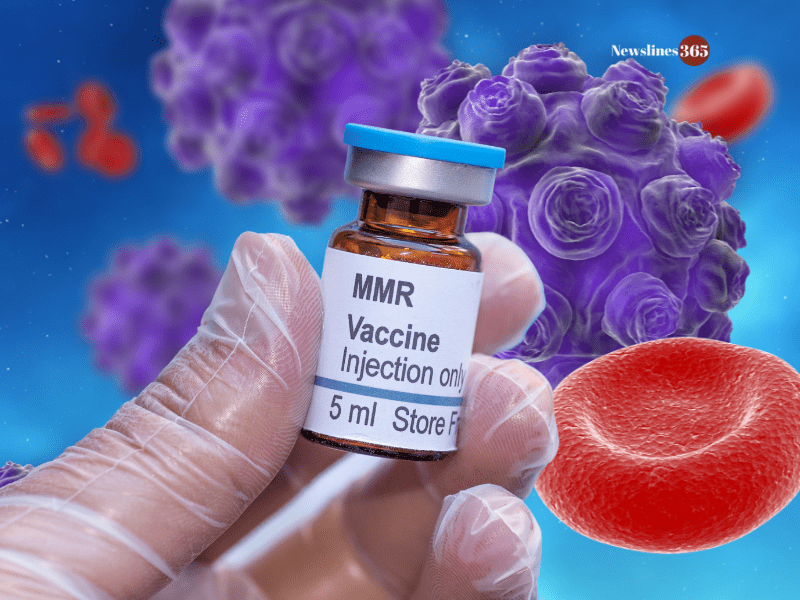Facts to know about Measles:
- Protective herd immunity requires vaccination coverage of at least 95% after two doses.
- While national coverage rates vary widely, they are at their lowest worldwide since 2008.
- Only 81% of youngsters are getting the first dose of the vaccination against measles, and 71% are getting the second.
- According to the paper, measles may easily travel from one area to another, making the disease a global concern.
- Last but not the least, measles has not been successfully eradicated in any of the world’s six WHO areas.

Tedros Adhanom Ghebreyesus, the director general of the World Health Organization, has stated that despite rapid development and deployment of vaccines against COVID-19 in the largest vaccination campaign in history, routine immunization programs were badly disrupted and millions of children missed out on life-saving vaccinations against deadly diseases like measles. Further, he stressed the need of getting immunization programs back to business as usual. Additionally, he stated that “every number in our study indicates a kid at risk of an illness that may be averted.”
In 2021, there were around nine million cases of measles reported worldwide, leading to an estimated 128,000 fatalities. There were 22 nations hit by major epidemics that caused widespread disruption, and some of these have persisted into 2018. There were delays in administering the measles vaccination due to the pandemic that prevented 25 million boys and girls from receiving their first dose and another 14.7 million from receiving their second.
The global effort to eradicate measles has taken a major blow due to the unprecedented decrease in vaccine coverage. Measles is becoming a global health emergency in every region because of declining vaccination coverage, decreased measles surveillance, and ongoing pauses and delays in immunization caused by the epidemic.
The research warned that the situation was dire since measles is one of the most infectious human diseases, even though it can be avoided nearly totally by getting vaccinated.
Recommendation for UN agencies and Policymakers:
- There is a need for a Global Health policy like Polio
- There is an urgent need for the UN and Policy Makers to ensure better coordination and collaboration in today’s interdependent world.
- Public health officials should be encouraged to speed up and bolster immunization efforts and ensure equitable access to the vaccine.
- Prioritizing efforts toward localizing and immunizing all children who are not already protected requires coordinated action by all partners, and at all levels (global, regional, national, and local).
- Strengthening and maintaining core resources.
- Ensuring sustainability of funding for underdeveloped, developing, and fragile countries.
- Vaccination can be increased by strengthening community and social mobilization efforts by ensuring a proper social mobilization network for immunization.
- The danger of epidemics can be identified before they get worse by strengthening existing surveillance systems and increasing efficiency in surveillance reporting.

Thank you for reading!
by Sikander Khan














